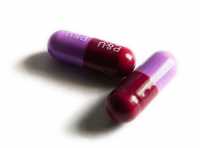Author Interviews, Global Health, Hospital Acquired, Infections, Lancet / 07.11.2018
Tens of Thousands Worldwide Die of Antibiotic-Resistant Bacteria
MedicalResearch.com Interview with:
 Dr Alessandro Cassini MD
Epidemiologist, European Centre for Disease Prevention and Control
Solna, Sweden
MedicalResearch.com: What is the background for this study?
Response: We published an ECDC study estimating attributable deaths and disability-adjusted life-years caused by infections with antibiotic-resistant bacteria in the European Union and the European Economic Area (EU/EEA). This study is based on 2015 data from the European Antimicrobial Resistance Surveillance Network (EARS-Net).
The study was developed by experts at ECDC and the Burden of AMR Collaborative Group, and published in The Lancet Infectious Diseases.
(more…)
Dr Alessandro Cassini MD
Epidemiologist, European Centre for Disease Prevention and Control
Solna, Sweden
MedicalResearch.com: What is the background for this study?
Response: We published an ECDC study estimating attributable deaths and disability-adjusted life-years caused by infections with antibiotic-resistant bacteria in the European Union and the European Economic Area (EU/EEA). This study is based on 2015 data from the European Antimicrobial Resistance Surveillance Network (EARS-Net).
The study was developed by experts at ECDC and the Burden of AMR Collaborative Group, and published in The Lancet Infectious Diseases.
(more…)
 Dr Alessandro Cassini MD
Epidemiologist, European Centre for Disease Prevention and Control
Solna, Sweden
MedicalResearch.com: What is the background for this study?
Response: We published an ECDC study estimating attributable deaths and disability-adjusted life-years caused by infections with antibiotic-resistant bacteria in the European Union and the European Economic Area (EU/EEA). This study is based on 2015 data from the European Antimicrobial Resistance Surveillance Network (EARS-Net).
The study was developed by experts at ECDC and the Burden of AMR Collaborative Group, and published in The Lancet Infectious Diseases.
(more…)
Dr Alessandro Cassini MD
Epidemiologist, European Centre for Disease Prevention and Control
Solna, Sweden
MedicalResearch.com: What is the background for this study?
Response: We published an ECDC study estimating attributable deaths and disability-adjusted life-years caused by infections with antibiotic-resistant bacteria in the European Union and the European Economic Area (EU/EEA). This study is based on 2015 data from the European Antimicrobial Resistance Surveillance Network (EARS-Net).
The study was developed by experts at ECDC and the Burden of AMR Collaborative Group, and published in The Lancet Infectious Diseases.
(more…)